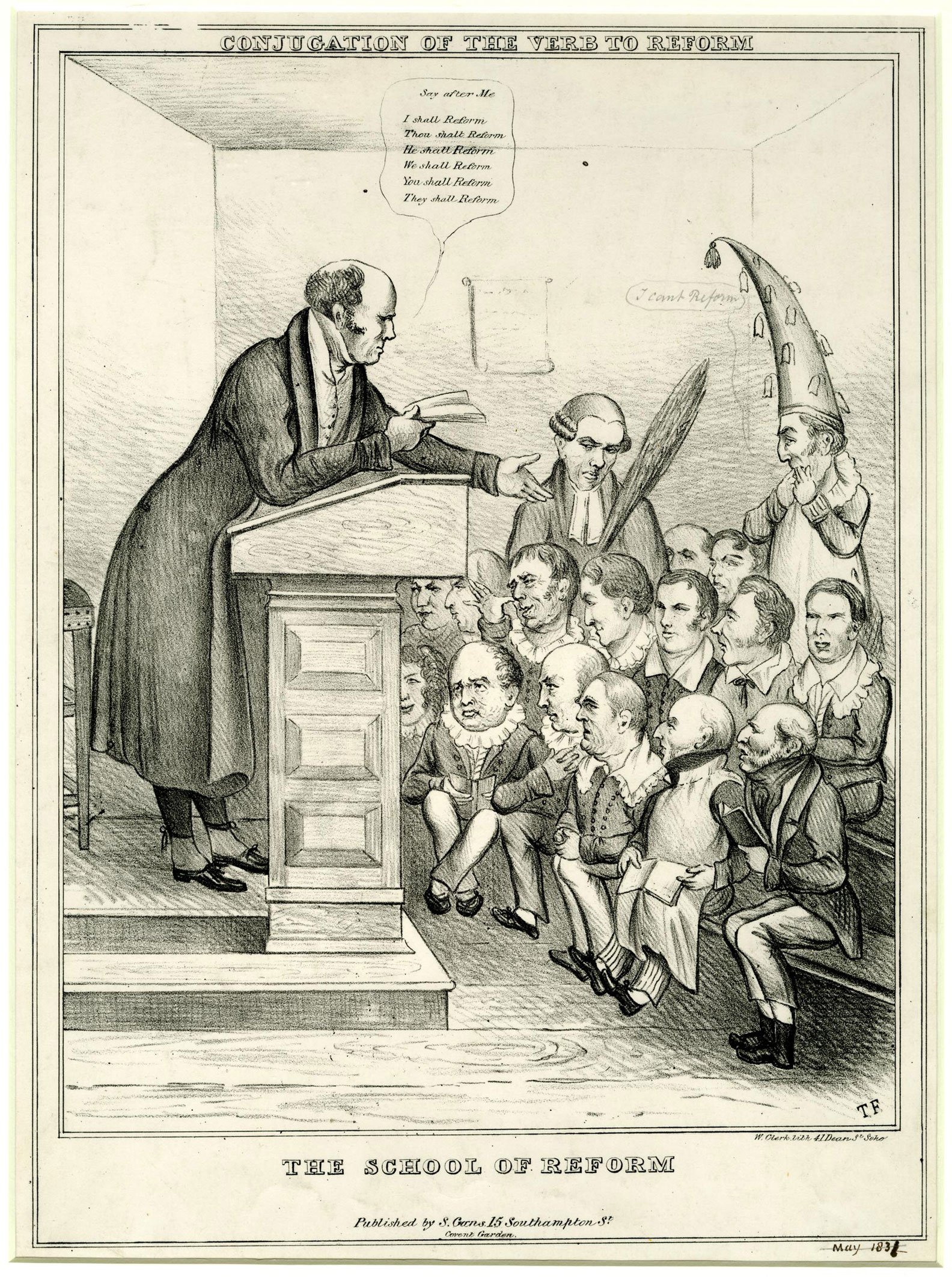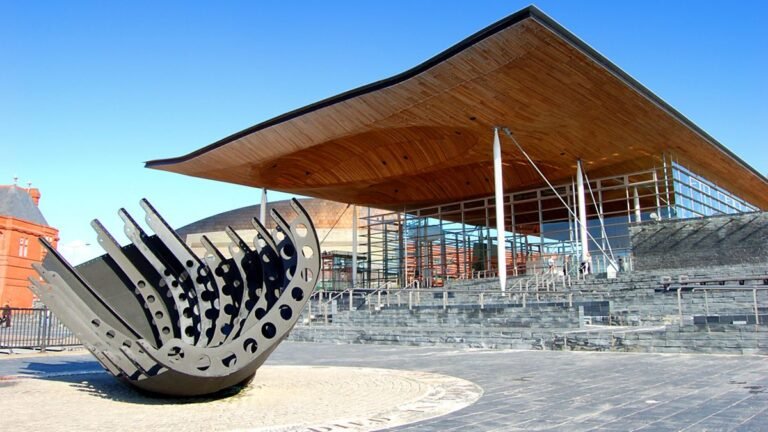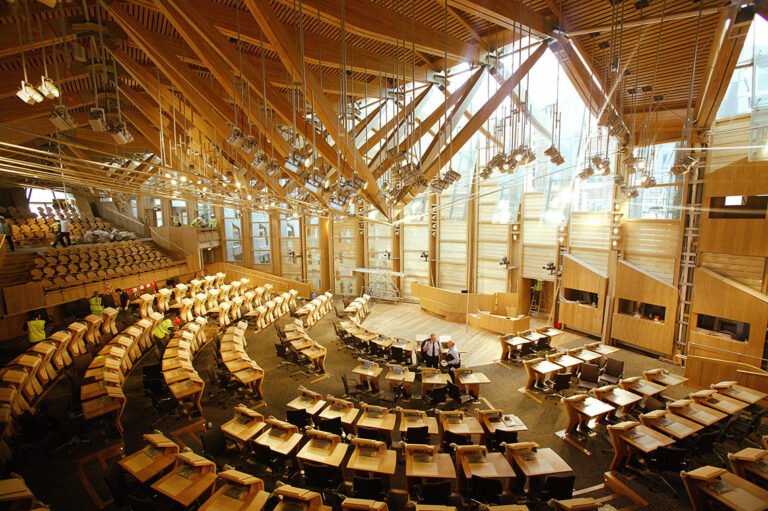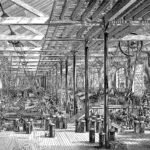The Great Reform Act of 1832 was a major British law. It changed the way Parliament worked and who could vote.
This act marked a significant step towards democracy. Before 1832, the British electoral system was unfair. Many people had no say in choosing leaders. The Act aimed to fix these problems. It brought changes to voting rights and representation. It was a response to public demand for a fairer system.
Understanding this law helps us see the roots of modern democracy. It also shows how reforms can impact society. This introduction sets the stage for exploring the Act’s importance and effects. Let’s dive into how the Great Reform Act reshaped British politics.
Historical Context
Understanding the historical context of The Great Reform Act of 1832 is crucial to grasp its significance. This landmark legislation reshaped British politics, paving the way for a more democratic society. But what led to this monumental change? Let’s delve into the political landscape before 1832 and the mounting pressure for reform.
Pre-1832 Political Landscape
Before 1832, the British political system was hardly democratic. Voting rights were limited to wealthy landowners, excluding the majority of the population. Imagine living in a world where your voice didn’t count unless you owned land. This was the reality for many during this time.
Parliament was dominated by “rotten boroughs,” areas with very few voters but substantial political influence. These boroughs were often controlled by a single person or family. Does it seem fair that some members of Parliament were elected by a mere handful of voters? It certainly didn’t to those who were excluded.
The urbanization and economic changes following the Industrial Revolution highlighted the need for political reform. Cities grew rapidly, yet their representation in Parliament remained disproportionately low. Can you picture the frustration of living in a bustling city with little say in government affairs?
Pressure For Reform
The call for change was loud and clear. Across the country, voices from different backgrounds united to demand a fairer political system. Reformers argued that political representation should reflect the country’s changing social landscape. Wouldn’t you agree that a modernizing nation needs a modern political framework?
Public protests and political organizations sprang up, pushing for reform. The Birmingham Political Union, for instance, played a pivotal role in rallying people towards this cause. Their efforts showcased the power of collective action. Have you ever witnessed the strength of a community coming together for a shared goal?
The government couldn’t ignore the growing discontent. Political leaders recognized the necessity of reform to prevent civil unrest. The fear of revolution loomed large, as seen in other parts of Europe. What would you do if the stability of your country was at stake?
These pressures culminated in the passing of The Great Reform Act. It marked the beginning of a new era in British politics. The Act expanded the electorate, giving a voice to the previously unheard. How might your life be different if you had been part of this transformative change?
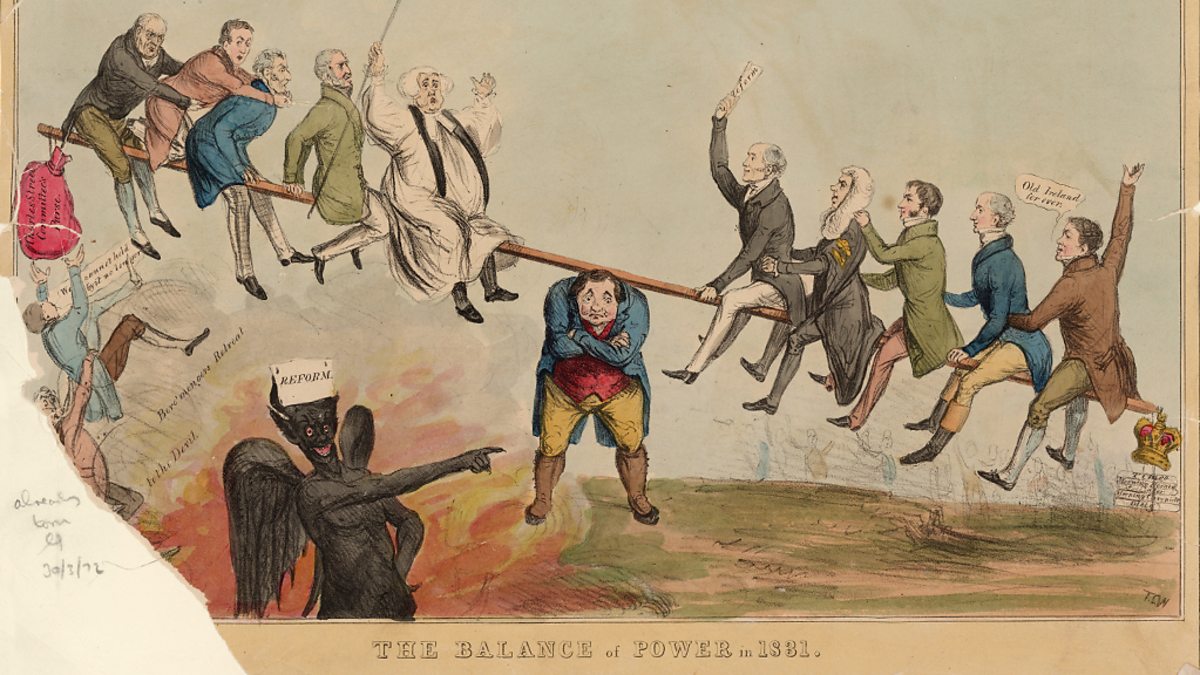
Credit: www.bbc.co.uk
Key Provisions
The Great Reform Act of 1832 marked a pivotal change in British politics. The act addressed many long-standing electoral grievances. Understanding its key provisions offers insight into its historical impact. Below, we explore the major changes brought by the act.
Redistribution Of Seats
The act aimed to address imbalances in parliamentary representation. Many “rotten boroughs” lost their parliamentary seats. These were areas with few voters but equal representation. Seats were reallocated to growing industrial towns. This change reflected the population shifts of the time. Representation became more equitable across Britain.
Franchise Expansion
The act also expanded the voting franchise. It lowered the property requirements for voters. More middle-class men gained the right to vote. This led to a significant increase in the electorate. Yet, many working-class men and all women remained excluded. It was a step towards broader electoral participation. The expansion laid groundwork for future reforms.
Political Figures
The Great Reform Act of 1832 was a turning point in British politics. It marked a shift from aristocratic control to a broader representation of the people. Political figures played crucial roles in shaping this monumental change. Their debates and decisions paved the way for modern democracy.
Influential Reformers
Lord John Russell was a key figure in the reform movement. He advocated for change and pushed for fairer representation. His speeches and efforts inspired many supporters. Charles Grey, the Prime Minister, also championed the cause. He led the Whigs and was instrumental in passing the act. His leadership was vital in overcoming resistance. Thomas Attwood, a Birmingham banker, rallied public support. He organized meetings and petitions, ensuring the people’s voice was heard.
Opposition Leaders
The Duke of Wellington, a prominent Tory, opposed the reform. He believed in maintaining traditional power structures. His resistance delayed the process but couldn’t stop the eventual change. Robert Peel, another Tory leader, shared similar sentiments. Despite opposing the act, he later adapted to political shifts. Their opposition highlighted the deep divisions within society. Yet, their stance also galvanized reformers to push harder.
Social Impact
The Great Reform Act of 1832 was more than just a political milestone; it was a catalyst for profound social change. This landmark legislation redefined the social fabric of Britain, shifting the balance of power and altering everyday life in unexpected ways. As you delve into the social impact of this pivotal event, consider how class dynamics and urban versus rural shifts continue to shape society today.
Changes In Class Dynamics
The act reshaped class dynamics by expanding voting rights and reducing aristocratic influence. Suddenly, the middle class found a voice. Artisans, tradesmen, and factory owners could participate in decision-making processes previously reserved for the elite. This newfound power fueled aspirations and ambitions.
Think about how this change might have affected family conversations around dinner tables. Imagine discussing political issues that you were now empowered to influence. How would this shift in perspective impact your sense of self-worth and societal position?
With more people involved in politics, the definition of leadership evolved. Leaders emerged not from noble lineage but from merit and public support. The ripple effects of these changes can still be seen in modern democratic systems.
Urban Vs Rural Shifts
The Great Reform Act also highlighted urban versus rural tensions. As cities grew, rural areas struggled to maintain their political relevance. The act increased representation for urban areas, acknowledging their swelling populations and economic importance.
If you lived in a bustling city, you might have felt invigorated by this recognition. More representation meant that urban issues like public health and infrastructure could be addressed more effectively. On the flip side, if you were in a rural area, you might have felt sidelined, sparking debates on resource distribution.
Consider the lasting impact of these shifts. How do current urban challenges trace back to these historical changes? Reflect on the ongoing balance between rural needs and urban demands in policy-making today.
As you look at the social impact of the Great Reform Act, think about the people who lived through these changes. Their experiences offer valuable lessons for navigating the complexities of modern society. How can understanding their journey inform your approach to contemporary social issues?
Economic Implications
The Great Reform Act of 1832 brought significant economic changes. This act reshaped the political landscape, but its impact reached the economy too. It played a role in the evolving industrial and commercial spheres. Let’s explore how it influenced these areas.
Industrial Influence
The Industrial Revolution was transforming Britain. Factories and machines became central to production. Before the act, many industrial towns had little political voice. The reform gave these towns representation in Parliament. This change meant their needs and interests could be addressed. Industrialists could push for policies favoring growth. They sought improved infrastructure and labor laws. This helped industries grow and prosper.
Trade And Commerce
Trade was vital to the British economy. The reform act facilitated commercial expansion. It promoted a more balanced representation. Merchants gained a stronger voice in Parliament. They could advocate for fair trade practices. Better representation led to improved trade policies. These policies aimed at reducing barriers and tariffs. The changes helped boost both domestic and international trade. Commerce flourished, benefiting the economy greatly.

Credit: en.wikipedia.org
Legal Reforms
The Great Reform Act of 1832 marked a pivotal moment in British legal history. It expanded voting rights, reducing unfair representation in Parliament. This reform laid the foundation for modern democratic practices in the UK.
The Great Reform Act of 1832 was a monumental event in British history, bringing significant legal reforms that reshaped the political landscape. These reforms aimed to address the inequalities and inefficiencies of the electoral system. They marked the beginning of a more democratic process, influencing how people engage with politics today. Whether you’re a history enthusiast or someone curious about the evolution of democracy, understanding these reforms offers insights into the power of legislative change.
Electoral Process Changes
The Great Reform Act introduced crucial changes to the electoral process. It aimed to eliminate the ‘rotten boroughs,’ where very few voters elected MPs, making the system more fair. This reform redistributed seats to the growing industrial cities, reflecting the shift in population.
Imagine living in a city bursting with energy and innovation but having no voice in Parliament. The Act changed that, giving a voice to places like Manchester and Birmingham. It was a step towards equal representation.
Do you think your current electoral system represents your community accurately? Reflecting on historical changes like these can inspire us to advocate for fair representation.
Introduction Of Voter Registration
One of the groundbreaking changes was the introduction of voter registration. This reform was vital in ensuring that only eligible voters participated in elections. It helped curb corruption and made the voting process more transparent.
Consider how different life would be if you could vote without proving your eligibility. The introduction of voter registration set a precedent for accountability. It was an early move towards ensuring that every vote truly counted.
This change invites us to appreciate the importance of a reliable registration process. Could improvements in voter registration enhance transparency in today’s elections?
Legal reforms like these have lasting impacts, shaping how societies function. They remind us that every legislative act is an opportunity to create more equitable systems.
Public Reaction
Public reaction to The Great Reform Act of 1832 showed mixed feelings. Many celebrated more voting rights and fairer representation. Some feared changes and worried about losing power and control. The Act marked a significant step towards democracy in Britain.
The Great Reform Act of 1832 was a monumental step in reshaping British political life. This pivotal legislation aimed to address the widespread call for reform in the electoral system. As with any significant change, the public’s reaction was mixed, revealing a fascinating tapestry of support and opposition.
Support And Enthusiasm
Many saw the Act as a beacon of hope. It expanded the voting rights, allowing more men from the middle class to vote. This change was greeted with celebrations and public gatherings.
People believed it was a step toward fairness. More voices in elections meant more representation. This shift promised a future where the government reflected the people’s needs.
You might have seen your neighbors talking about it with excitement. Imagine the buzz in local pubs and market squares. Such reforms were rare, and this one inspired a sense of empowerment.
Criticism And Resistance
Not everyone welcomed the change. Some felt the reforms didn’t go far enough. The working class still found themselves without a voice in the political arena.
Landowners and aristocrats were apprehensive. They feared losing their grip on power and influence. This fear led to resistance, with some trying to undermine the reforms.
Imagine if you were a landowner worried about your influence. Would you support a change that might reduce your power? Resistance was not just political but deeply personal for many.
In reflecting on these reactions, consider your own stance on current political changes. Do you find yourself supporting reforms, or are you cautious of potential impacts? History shows us that public reaction can shape the course of reform, making your voice and opinion crucial.
Legacy And Influence
The Great Reform Act of 1832 reshaped Britain’s political landscape. It laid the foundation for modern democracy. This landmark legislation changed how citizens engaged with their government. It inspired future reforms and expanded voting rights. Understanding its legacy helps us appreciate today’s democratic systems.
Future Reform Acts
The Great Reform Act was just the beginning. It set the stage for future changes. The Reform Acts of 1867 and 1884 further expanded voting rights. They included more working-class men in the electoral process. These acts built on the original reform, gradually making the system fairer. Each act brought Britain closer to universal suffrage. This ongoing reform journey reflected society’s growing demand for equality. The initial act showed that change was possible. It encouraged lawmakers to keep pushing for fairness.
Impact On Modern Democracy
The Great Reform Act influenced modern democratic practices. It introduced principles that shaped today’s political systems. The act emphasized fair representation. It showed the importance of giving more people a voice. This idea continues to guide democratic reforms worldwide. The act also highlighted the need for responsive governments. It taught that governments must adapt to society’s needs. This lesson is crucial in today’s fast-changing world. The act’s legacy lives on in our pursuit of democratic ideals.
FAQs
What Did The Great Reform Act Of 1832 Do?
The Great Reform Act of 1832 expanded voting rights in Britain. It redefined parliamentary representation by eliminating “rotten boroughs. ” The act increased voter eligibility, particularly for the middle class. It marked a shift towards more democratic governance, reducing aristocratic influence in elections.
What Did The Reform Acts Of 1832 1884 Deal With?
The Reform Acts of 1832 and 1884 expanded voting rights in the UK. The 1832 Act targeted middle-class men, while the 1884 Act extended suffrage to rural workers, greatly increasing the electorate. These Acts helped democratize the political system, reducing aristocratic influence in parliamentary representation.
How Did The Reform Act Of 1832 Affect Voter Representation In Parliament?
The Reform Act of 1832 increased voter representation by redistributing seats in Parliament. It reduced the power of “rotten boroughs” and expanded voting rights to more middle-class men. This reform helped correct imbalances and laid the groundwork for further electoral reforms in Britain.
What Did The 1832 Reform Bill Do In Quizlet?
The 1832 Reform Bill expanded voting rights in Britain. It granted representation to new industrial cities and eliminated “rotten boroughs,” ensuring fairer elections. The bill increased male voters by about 50%, laying groundwork for future reforms.
Conclusion
The Great Reform Act of 1832 changed Britain’s political landscape. It reduced corruption and expanded voting rights. Many people gained a voice in government for the first time. This act laid the groundwork for future democratic reforms. It showed the power of collective action and political will.
Change was possible, even in tough times. Studying this act helps us understand democracy’s roots. It reminds us that progress often starts with small steps. Reflecting on this history inspires us to keep striving for justice. The journey of reform continues today.
Together, we can shape a better future.

